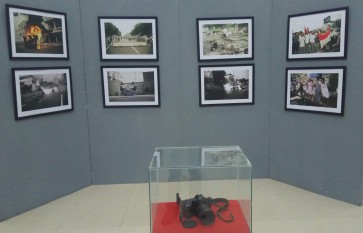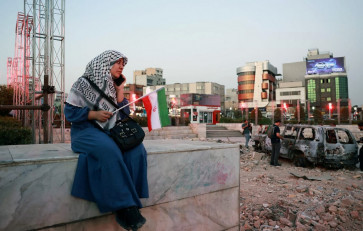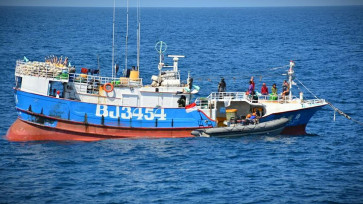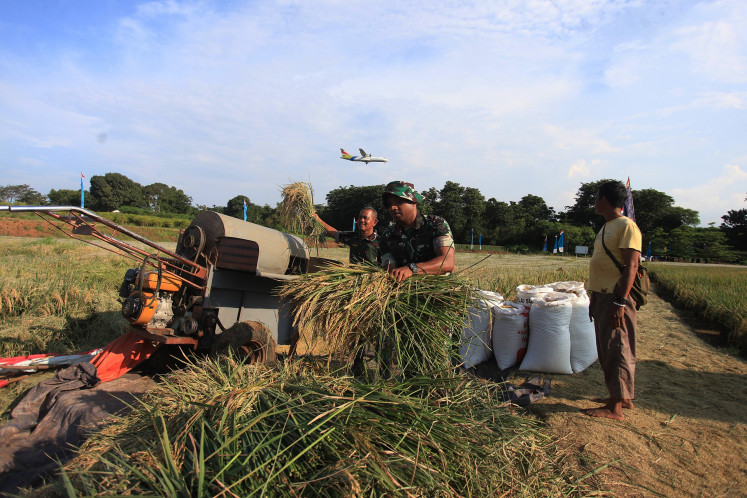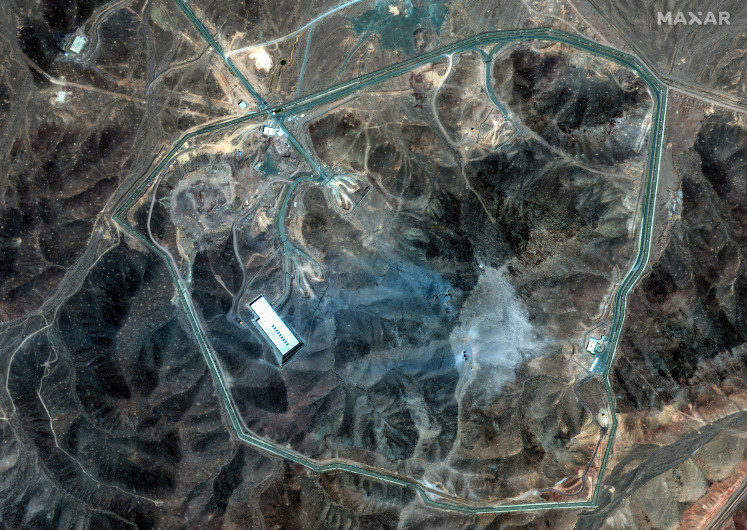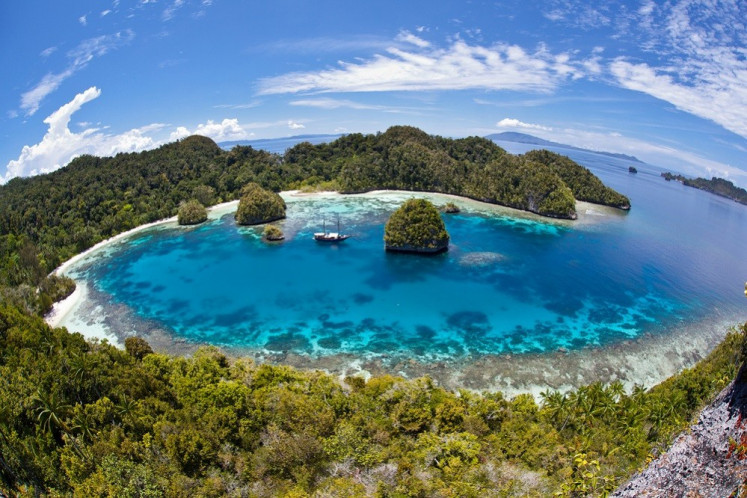Popular Reads
Top Results
Can't find what you're looking for?
View all search resultsPopular Reads
Top Results
Can't find what you're looking for?
View all search resultsVP Ma’ruf Amin joins world leaders at Abe’s funeral
Ma'ruf is one of many dignitaries who have joined the funeral of Abe and have also met with Kishida for bilateral talks.
Change text size
Gift Premium Articles
to Anyone

V
ice President Ma'ruf Amin kicked off his visit to Japan on Tuesday on a diplomatic mission that included the 79-year-old Muslim cleric attending the funeral of slain former Japanese prime minister Shinzo Abe.
In a statement released before his meeting with Japanese Prime Minister Fumio Kishida, Ma'ruf said that Japan continued to be an important partner for Indonesia and that his presence at Abe's funeral would be further proof of those close ties.
"I am ready to join the funeral of former prime minister Shinzo Abe. I have been assigned [by President Joko "Jokowi" Widodo] to attend because Japan is an important partner to Indonesia, especially in the economy," Ma'ruf said in a statement made available on Tuesday.
Ma'ruf also added that Abe was one of the key figures in Japanese politics that had contributed to the strengthening of ties between Indonesia and Japan.
"Because of [his role] the ties have become strategic and have improved to another level, bringing people of both countries closer together," he said.
Ma'ruf is one of many dignitaries who have joined the funeral of Abe and have also met with Kishida for bilateral talks.
Initially, Coordinating Economic Minister Airlangga Hartarto was the one assigned for the Japan trip. However, at the last minute, the President decided to send the Vice President for the diplomatic mission.
On Monday, Kishida met with Vietnamese President Nguyen Xuan Phuc, Romanian Prime Minister Nicolae Ciuca, International Energy Agency executive director Fatih Birol and other leaders.
For three days through Wednesday, Kishida is slated to hold talks with about 40 foreign dignitaries, including Australian Prime Minister Anthony Albanese, Indian Prime Minister Narendra Modi, South Korean Prime Minister Han Duck Soo and International Olympic Committee President Thomas Bach, Kyodo News reported.
Japan expects to spend around 1.7 billion yen (US$12 million) on the state funeral for Abe, despite controversy over the plan.
Abe was shot dead on the campaign trail in July and the government expects dozens of current and former heads of state to pay condolences at the Sept. 27 service in Tokyo.
But recent polls show about half of Japanese voters oppose the publicly funded event.
On Tuesday's funeral, Abe's ashes, carried by his widow Akie, arrived at the storied Budokan venue in Tokyo, where a 19-gun salute sounded in honor of the slain former leader.
In a eulogy, Prime Minister Fumio Kishida described the politician as a "person of courage", listing his achievements, including efforts to strengthen Japan's diplomatic ties.
"I feel heart-breaking grief," Kishida said as he faced a photograph of Abe that was hung above a grand floral structure used to display his ashes, medals and the Japanese flag, AFP reported.
Abe was Japan's longest-serving prime minister and one of the country's most recognizable political figures, known for cultivating international alliances and his "Abenomics" economic strategy.
He resigned in 2020 over recurring health problems, but remained a key political voice and was campaigning for his ruling party when a lone gunman killed him with a homemade weapon on July 8.
The shooting sent shock waves through a country with famously low gun crime and prompted international condemnation.
But the decision to give him a state funeral – only the second for a former premier in the post-war period – has provoked opposition, with around 60 percent of Japanese against the event in recent polls.
'So much opposition'
United States Vice President Kamala Harris and world leaders including Indian Prime Minister Narendra Modi and Australian premier Anthony Albanese were among those in attendance at the Budokan.
Outside, thousands of people stood in line as the ashes arrived, waiting to deliver flowers and say a prayer in two mourning tents.
However, those who opposed the funeral were also out, marching near the tents before a demonstration in front of the parliament.
Abe's accused killer targeted the former leader believing he had ties to the Unification Church, which the attacker resented over massive donations his mother had made to the sect.
The assassination prompted fresh scrutiny of the church and its fundraising and uncomfortable questions for Japan's political establishment, with the ruling party admitting around half its lawmakers had links to the religious organization.
Kishida has pledged the party will sever all ties with the church, but the scandal helped fuel discontent over the state funeral.
Thousands have protested the ceremony and a man set himself on fire last week near the prime minister's office, leaving notes reportedly expressing his objection to the event.
Some lawmakers from opposition parties are also boycotting the funeral.
Japan's emperor and empress are not attending, as neutral national figures, but Crown Prince Akishino and his wife led mourners in offering flowers at the end of the 90-minute service.

